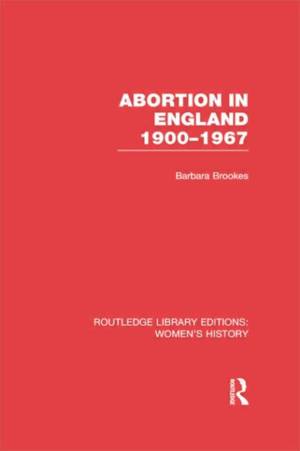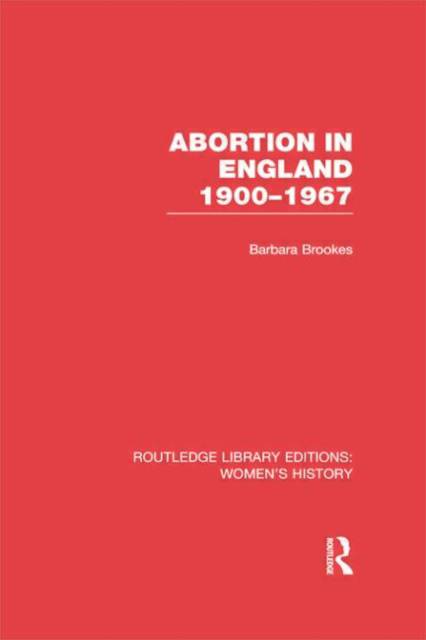
- Retrait gratuit dans votre magasin Club
- 7.000.000 titres dans notre catalogue
- Payer en toute sécurité
- Toujours un magasin près de chez vous
- Retrait gratuit dans votre magasin Club
- 7.000.0000 titres dans notre catalogue
- Payer en toute sécurité
- Toujours un magasin près de chez vous
Description
Over the decades from 1900 to 1967 abortion was transformed from an important female-centred form of fertility control into a medical event, closely monitored by the State. This transition, the author argues here, took place against a background of debate over fertility control and its implications for women's maternal role.
The book, originally published in 1988, suggests that the inter-war years saw a crucial mapping of boundaries in the debates over abortion. The distinction between methods of fertility control used before and after conception was more sharply drawn. The abortion law was difficult to enforce and in 1936 the Abortion Law Reform Association was founded by feminists to call for safe legal abortion as a woman's right.
Resort to criminal abortion continued in the post-war years and the number of therapeutic abortions also began to increase. The medical profession's attempt to create a distinction between worthy medical and spurious social reasons for fertility control gave way in the face of women's demands for safe and effective means to plan when and if they would have children. After a hard-fought battle, the abortion law was reformed in 1967. The abortion decision, however, remained firmly in the hands of the medical profession.
Spécifications
Parties prenantes
- Auteur(s) :
- Editeur:
Contenu
- Nombre de pages :
- 208
- Langue:
- Anglais
- Collection :
Caractéristiques
- EAN:
- 9780415752466
- Date de parution :
- 10-04-14
- Format:
- Livre broché
- Format numérique:
- Trade paperback (VS)
- Dimensions :
- 155 mm x 226 mm
- Poids :
- 317 g

Les avis
Nous publions uniquement les avis qui respectent les conditions requises. Consultez nos conditions pour les avis.






